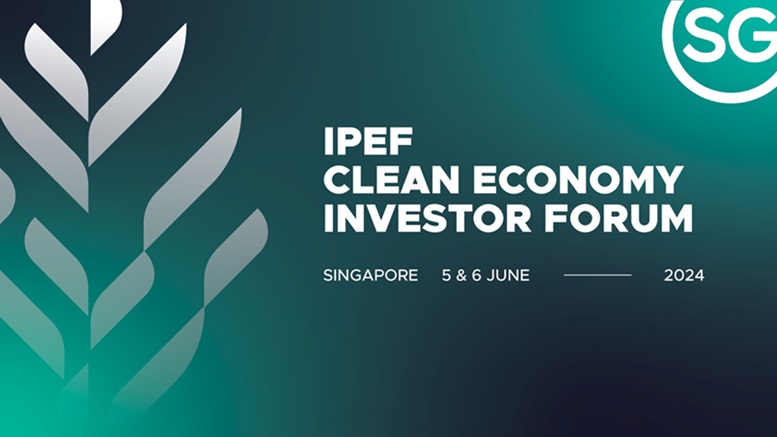In the bustling heart of Singapore, a significant gathering is underway as the U.S.-led Indo-Pacific Economic Framework (IPEF) hosts its ministerial meeting. This isn’t just any meeting; it’s the first in-person IPEF ministerial session since the landmark negotiations concluded last November in California. Among the highlights of this event is the “Clean Economy” investor forum, a high-profile gathering of major firms ready to make substantial climate and infrastructure investments across the Indo-Pacific region. As U.S. Commerce Secretary Gina Raimondo put it, “We’re going to finalize all of those agreements at the ministerial,” setting the stage for groundbreaking announcements on supply chain agreements and more.
The forum isn’t just a talk shop; it’s a dynamic arena where 22 major U.S. companies, including giants like Amazon, Google, and Microsoft, will meet with Australian and Japanese investors. Raimondo emphasized the urgency of moving from agreements to action, remarking, “Government-to-government agreements are great, but honestly it’s time to implement – put some points on the board.” The goal is clear: start doing deals and making tangible investments in the clean economy across IPEF countries. Matchmaking sessions will connect countries’ top clean economy projects with eager investors, fostering collaborations that could spark multibillion-dollar investments in renewable energy, energy transmission, transportation, and mobility projects.
Imagine a future where Thailand and Malaysia become hubs of renewable energy generation, thanks to the investments sparked by this forum. Raimondo shared her hopes for the forum’s impact, stating, “These countries want to hit their own climate goals and build up their own infrastructure, but they need capital and that’s what we’re going to bring to the equation.” It’s an ambitious vision, but with the combined efforts of these major corporations and the participating countries, it’s within reach. The momentum generated here could propel the region toward a greener, more sustainable future.
But it’s not just about the environment. The “Fair Economy” agreement aims to tackle corruption and tax evasion, laying a foundation for transparency and integrity. This week, countries are expected to roll out detailed anti-corruption pledges and tax transparency measures. Raimondo underscored the importance of this framework, saying, “It enables all the rest of this thing to work.” With countries like Australia, India, Japan, and Vietnam on board, the IPEF is poised to make significant strides in both clean economy initiatives and fair economic practices. The energy in Singapore is palpable, as leaders and investors come together to forge a path toward a more sustainable and equitable future.
(Source: IPEF | Business Standard | Economic Times)









